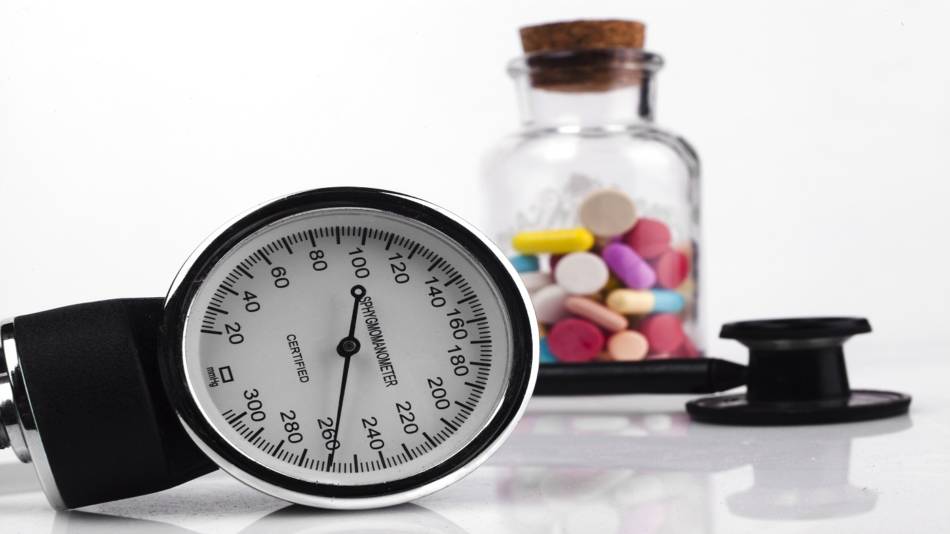
Answer:
There are many supplements, as discussed below, that may lower blood pressure. However, if you already take medication to lower blood pressure, always consult your physician before using these supplements, as they may lower your blood pressure too much, or interfere in some other way with your current medication.
Supplements that may help lower blood pressure
Omega-3 fatty acids from fish oil and flaxseeds (a source of the omega-3 alpha-linolenic acid, or ALA) may help to reduce blood pressure. For example, a small study found that consuming milled flaxseeds daily lowered both systolic and diastolic pressure in people with peripheral artery disease, many of whom also had high blood pressure. In fact, among those who started the study with a blood pressure of 140 or higher, those who consumed milled flaxseeds achieved a reduction of 15 mm Hg in systolic blood pressure and 7 mm Hg in diastolic blood pressure.
Olive oil may also have a significant benefit; one study among men and women with mild to moderately high blood pressure found that those who slightly reduced their intake of saturated fat and consumed several tablespoons of olive oil per day were able to reduce their dosage of blood pressure lowering medication by 48%.
Olive leaf extract may help to reduce blood pressure, according to a small study in Indonesia among 162 men and women with stage 1 hypertension (average blood pressure 148/93 mm Hg). The study found that those who took, twice daily, 500 mg of olive leaf extract (Benolea from Frutarom, which funded the study) experienced modest but statistically significant reductions in systolic and diastolic blood pressures were similar to those given the blood-pressure lowering drug captopril (12.5 mg to 25 mg per day). However, there was no placebo control, making it impossible to establish the actual effects of the extract and drug (Susalit, Phytomedicine 2011).
Short-term studies have found that vitamin C may modestly lower systolic and diastolic blood pressure, with average decreases of 3.84 mm Hg and 1.48 mm Hg, respectively.
Certain probiotic strains may modestly lower diastolic and systolic blood pressure. However, be aware that Saccharomyces cerevisiae (Brewer's yeast), which is sometimes sold as a probiotic, may cause dangerously high blood pressure if taken with certain medications, so carefully review the label of your probiotic before taking.
Nattokinase, an enzyme derived from the Japanese soybean-based food natto, has been shown to modestly reduce systolic and diastolic blood pressure (by 5.55 mmHg and 2.84 mmHg, respectively) in men and women with untreated high systolic blood pressure.
Cinnamon may reduce blood pressure in people with type 2 diabetes or prediabetes.
Curcumin has been found to lower systolic, but not diastolic blood pressure, in postmenopausal women and people with lupus who have kidney inflammation. Similarly, garlic supplements may reduce systolic, but not diastolic, blood pressure in men and women who take anti-hypertensive medications but whose blood pressure remains uncontrolled.
While low blood levels of vitamin D are associated with elevated blood pressure, a comprehensive review of 46 clinical trials concluded taking a vitamin D supplement was ineffective for lowering blood pressure, regardless of starting levels of vitamin D in the blood.
There is mixed evidence that cocoa and chocolate may cause modest reductions in blood pressure, with some studies finding a benefit and others finding no effect on blood pressure at all. Similarly, evidence that pomegranate juice and resveratrol may lower blood pressure is inconsistent -- although one study did find resveratrol to significantly lower systolic blood pressure people with type 2 diabetes.
A low-dose of vitamin B-2 (riboflavin) may reduce systolic and diastolic blood pressure in people with a certain genetic type (MTHFR 677TT), which can predispose to high blood pressure.
Results from one clinical study in men and women with metabolic syndrome suggests that berberine, a compound found in plants such as barberry, Oregon grape and goldenseal, may lower systolic blood pressure.
Hawthorn extract made from the leaves and flowers may modestly lower blood pressure, although more studies are needed to confirm. The blood pressure-lowering effect is attributed to flavonoid constituents (including quercetin), which may have vasorelaxant, anti-inflammatory, and antioxidant effects (Verma, Nat Prod Bioprospect 2021). A small study among people with type 2 diabetes and hypertension (71% of whom were taking one or more blood pressure-lowering drugs) showed that taking 600 mg of hawthorn leaf/flower extract (standardized to 2.2% flavonoids) before breakfast and dinner (total daily dose 1,200 mg) for 16 weeks lowered diastolic blood pressure by 2.6 mmHg compared to placebo, but there was no significant reduction in systolic blood pressure (Walker, Br J Gen Pract 2006). A previous small study by the same research group among people with mild hypertension showed that taking 500 mg of hawthorn extract (standardized to 1.8% vitexin-2-rhamnosides, a hawthorn flavonoid) daily for 10 weeks tended to lower diastolic blood pressure, but the change was not significant, possibly due to the lower dose (Walker, Phytother Res 2002). Many commercially available hawthorn extract supplements (typically made from the leaves and flowers) are standardized to 1.8% flavonoids or vitexin (a specific flavonoid), which is similar to the amount used in clinical research, but products containing hawthorn berry syrup (such as Dr. Christopher's Formulas Hawthorn Berry Heart Syrup) or hawthorn berry extract are often not standardized to any constituents and there is no strong evidence to support the use of hawthorn berry syrup or berry extract for any indication.
Potassium is an important electrolyte that helps maintain blood pressure. In general, experts recommend that people with high blood pressure — especially those with high sodium intake — aim to increase intake of potassium from foods to about 3,500 to 5,000 mg daily. One method for doing this is substituting table salt with potassium-enriched salts (See our good options among "lite" salts). Be aware that certain types of medications used to treat high blood pressure may increase potassium levels. Therefore, it's best to consult with your physician before increasing dietary intake of potassium, especially if you are already taking medication for high blood pressure. (Also be aware that noni juice contains a large amount of potassium.)
Preliminary evidence suggests ashwagandha and black cohosh could potentially lower blood pressure. Although there is not enough evidence to take these supplements for this use, take with caution if you are already taking blood-pressure lowering medications.
CBD (cannabidiol) oil can cause a modest drop in blood pressure in people taking high doses, although there do not appear to be clinical studies specifically investigating its effects in people with high blood pressure.
Beetroot juice (also known as beet juice) may have a very modest effect on lowering blood pressure. Most beetroot supplements, however, are unlikely to provide this benefit.
L-Theanine may lessen blood pressure increases associated with caffeine use.
Having low or deficient levels of magnesium may elevate blood pressure, although magnesium supplementation in people with high blood pressure appears to have, at best, a very modest benefit.
Although some studies have found CoQ10 to lower high blood pressure, a critical review of these studies concluded that overall, CoQ10 does not have a significant effect on lowering blood pressure.
Acetyl-L-carnitine, taken alone or with alpha-lipoic acid, may modestly lower systolic blood pressure in people with high blood pressure, but it does not seem to lower diastolic blood pressure in most people (McMackin, J Clin Hypertens 2007; Ruggenenti, Hypertension 2009; Parvanova, J Endocr Soc 2018).
Research suggests that L-arginine may modestly lower systolic and diastolic blood pressure in people with high blood pressure, but more research is needed to confirm.
Taurine supplementation appears to lower blood pressure in people with prehypertension, but it may take about 3 months for any benefit.
Getting adequate niacin from foods has been associated with a decreased risk of developing high blood pressure, although getting too much niacin from foods may increase the risk. In clinical trials, the effects of niacin supplementation on blood pressure have been inconsistent.
Hibiscus, taken in the form of capsules or tea, may reduce systolic blood pressure by about 7 mmHg compared to control (e.g., placebo, other teas or diet), but it does not appear to significantly lower diastolic blood pressure. Hibiscus may have the greatest benefit when taken in daily doses of more than 1 gram of dried flower and when used for more than 4 weeks, although more studies are needed to confirm (Ellis, Nutr Rev 2022). Hibiscus may lower blood pressure by a mechanism similar to ACE-inhibitors (Nwachukwu, Indian J Pharmacol 2015).
Supplements that may increase blood pressure
Despite the fact that melatonin has been reported to decrease blood pressure in healthy people without hypertension, it may increase blood pressure in people taking antihypertensive medications.
Whole licorice, which contains a substance called glycyrrhizin, can increase blood pressure. However, licorice from which this substance has been removed, called deglycyrrhizinated licorice (DGL), is not believed to increase blood pressure and is available as a supplement.
Maca and hoodia may increase blood pressure.
Ingredients in some sexual enhancement supplements, such as yohimbe and arginine, may cause changes in blood pressure, and should be used with caution in people with high blood pressure or those taking medications to lower blood pressure.
When taken with certain drugs, including SSRI antidepressants, MAO inhibitors and stimulant drugs, St. John's wort can cause high or unstable blood pressure.
Green tea may reduce the effectiveness of certain beta-blocker drugs used to lower blood pressure.
For information about supplements which may interfere with ACE inhibitor drugs - sometimes taken for high blood pressure - see this CL Answer.
Choosing a device to monitor blood pressure
People with high blood pressure are advised to monitor their blood pressure at home, and this may be particularly important for people starting to take a new supplement, since supplements can affect blood pressure. The American Heart Association recommends that people with high blood pressure use a validated, automatic, cuff-style, upper arm monitor, since readings from wrist or finger monitors tend to be less reliable. Surprisingly, a recent analysis of the 100 best-selling blood pressure devices sold on Amazon in the U.S. and Canada between February 2020 and January 2021 found that about 34% of the best-selling devices sold in the U.S. and 22% of those sold in Canada were wrist cuff devices, not the recommended upper arm cuff devices. Furthermore, among the best-selling upper arm cuff devices, 84% of those sold in the U.S. and 70% of those sold in Canada were nonvalidated devices (Picone, JAMA 2023). Nonvalidated devices tend to be less precise and do not have proven accuracy like validated devices. To confirm that a device is validated, check the U.S. Validated Device Listing or Hypertension Canada.
When using an automated, upper-arm blood pressure device, be sure to select an appropriately sized cuff based on the mid-upper arm circumference. Devices usually have an marking on the cuff to indicate, when wrapped on the arm, if the size is right, but the cuff bladder length and width should be, respectively, about 80% and 40% of a person's mid-upper arm circumference (AHA, Selecting a Cuff Size). A study showed that using a cuff that was one size too big resulted in readings 3.6 mmHg lower than if the cuff was the appropriate size, and using a cuff that was one or two sizes too small resulted in readings that were, respectively, 4.8 mmHg and 19.5 mmHg higher than if the cuff was the appropriate size. Similar inaccuracies were seen for diastolic blood pressure readings (Ishigami, JAMA Intern Med 2023). Be aware that the standard cuff that is shipped with a blood pressure device might be too small, or possibly too big, for many people. A comparison of 10 popular blood pressure devices sold on Amazon (including the Omron BP5100, which is a validated device) found that the standard arm cuff shipped with nine out of 10 of the devices could accommodate an arm circumference of 22 to 42 cm, indicating that approximately 7% of U.S. adults would need to obtain a larger cuff size and about 0.3% would require a smaller cuff size. One of the devices could accommodate an arm circumference of only 22 to 40 cm, meaning that nearly 11% of adults would require a larger size (Kaur, Hypertension 2024).
Join today to unlock all member benefits including full access to all CL Answers and over 1,400 reviews.
Join NowAlready a member? Sign In Here.
Join now at www.consumerlab.com/join/

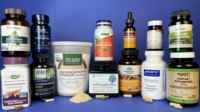
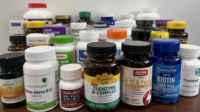
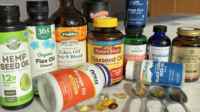
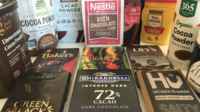
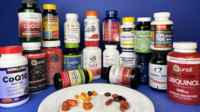
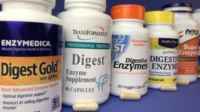
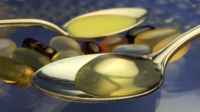
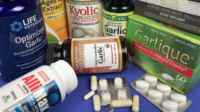
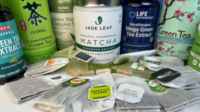
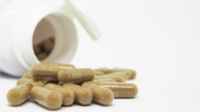
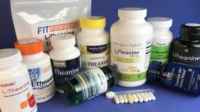
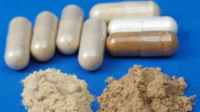
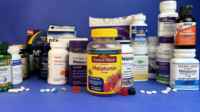
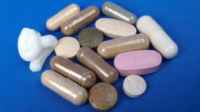
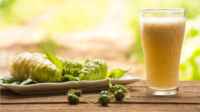
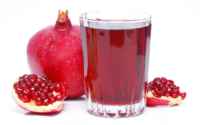
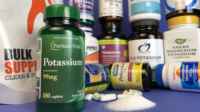
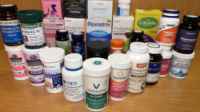
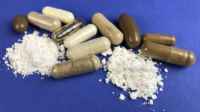

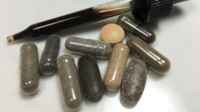
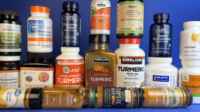
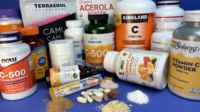
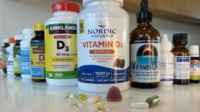
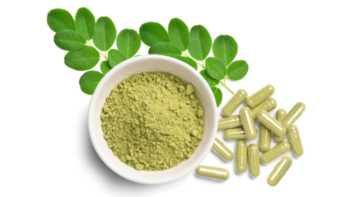
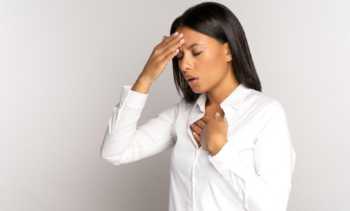
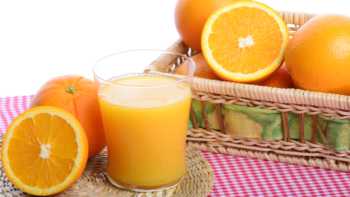
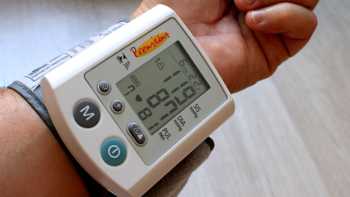
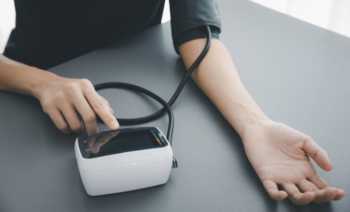
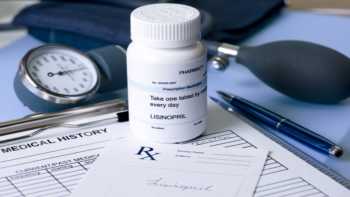





Submit your comment
This feature is restricted to active members.
Join now to add comments and get all member benefits, including over 1,400 reviews.
Join NowAlready a member? Sign in here.